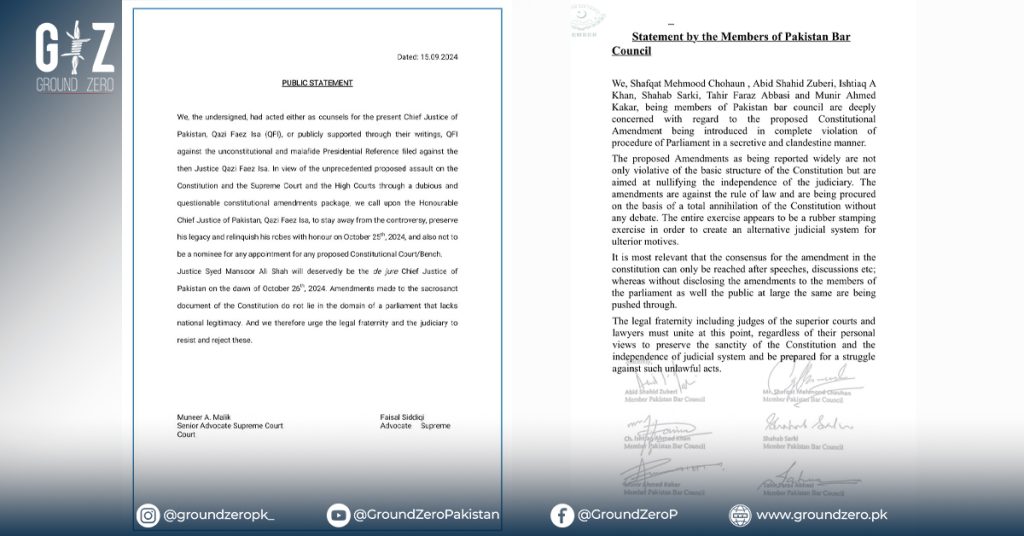Constitutional Amendment Protest by Pakistan Bar Council
Prominent members of the Pakistan Bar Council, including Shafqat Mehmood Chohaun, Abid Shahid Zuberi, Ishtiaq A Khan, Shahab Sarki, Tahir Faraz Abbasi, and Munir Ahmed Kakar, have expressed deep concerns over the proposed constitutional amendments. These amendments, introduced in what they describe as a “secretive and clandestine manner,” are criticized for violating parliamentary procedure and undermining the independence of the judiciary. For more details, visit our Pakistan News section.
Concerns Over Constitutional Amendment Process
The legal fraternity argues that the proposed amendments are being pushed through without proper debate or transparency, violating the basic structure of the Constitution and the rule of law. The Pakistan Bar Council members have called the process a “rubber stamping exercise” aimed at creating an alternative judicial system for ulterior motives. Senior Supreme Court lawyers, Muneer A. Malik and Faisal Siddiqi, have publicly demanded that the current Chief Justice of Pakistan (CJP) relinquish his position by October 25, 2024, and have urged the legal community to unite against what they see as unlawful changes to the Constitution. For context, see Dawn’s coverage.
Legal Fraternity’s Stand Against Proposed Amendments
The bar council members assert that any consensus for constitutional amendments can only be achieved after open speeches, discussions, and debates, which have not occurred. They argue that bypassing the parliamentary process threatens the sanctity of the Constitution and the independence of the judiciary. The legal community, including judges and lawyers, is being called upon to resist these amendments and preserve the judicial system’s integrity. Read more in Express Tribune’s report.
Call to Action for the Legal Fraternity
Senior Supreme Court lawyers Malik and Siddiqi, in their statement, emphasized that amending a document as fundamental as the Constitution should not be within the purview of a parliament lacking national legitimacy. They have urged the legal fraternity and judiciary to reject the proposed changes and to prepare for a struggle to protect constitutional principles and judicial independence. This sentiment is echoed by fellow advocates across Pakistan who fully endorse this stance.
Implications for Pakistan’s Judicial Independence
The controversy surrounding these amendments has raised concerns about the potential erosion of judicial independence in Pakistan. If passed without proper debate or consensus, these changes could alter the country’s judicial landscape significantly, undermining the rule of law. The unified resistance from the legal community may play a crucial role in determining the outcome of this proposed constitutional change. Stay updated with our ongoing coverage in the Opinions section.


